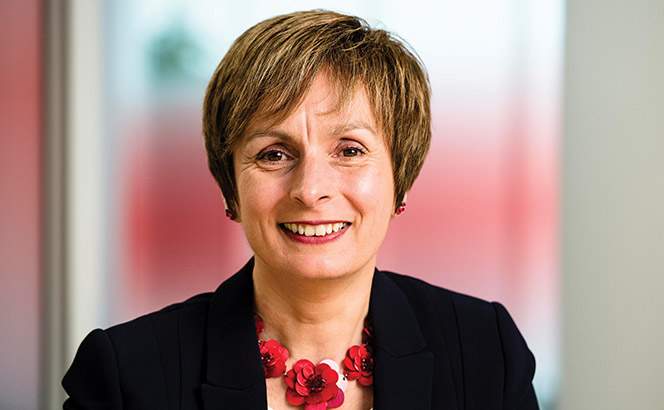A group of 65 general counsel (GCs) spanning major companies from the UK and Europe has collectively signed a letter urging law firms to improve their diversity efforts.
Among those to have lent their support to the statement are Shell GC Donny Ching, Vodafone group GC Rosemary Martin (pictured), Unilever’s chief legal officer Ritva Sotamaa, Anglo American group GC Richard Price and BHP Billiton group GC Caroline Cox.
The statement, issued 19 March, said: ‘We commit to promoting diversity in the workplace. We value the range of perspectives, ideas and experiences that diversity provides, whether grounded in gender, race, sexual orientation, disability, cultural background, religion or age.
‘We will therefore encourage greater diversity and inclusion in our businesses and co-operate to foster these same values throughout the legal profession and the broader business community.’
Vodafone’s Martin told Legal Business: ‘We didn’t want it to be a shrieking document, especially because we recognise we all have a part to play.
‘The hope is that by taking a constructive and collaborative approach we can find techniques that will make a difference and that people will use them.’
Martin said that the signatory GCs will now be contacting their respective partner law firms to encourage conversations on diversity. She said it has already produced ‘constructive discussions’ with multiple firms.
‘The 65 of us who have already signed is just a start, we are really keen for as many GCs as possible to get involved’, Martin added.
This European in-house campaign mirrors that of its transatlantic counterparts: In January, more than 170 GCs from US companies signed a similar open letter demanding a greater private practice diversity focus.
With signatories including the in-house legal chiefs of companies such as Indiegogo, Lyft and Toshiba America Electronic Components, the letter stated: ‘We expect the outside law firms we retain to reflect the diversity of the legal community and the companies and the customers we serve.’
While the document applauded firms who have made efforts, it continued: ‘At the same time, we are disappointed to see that many law firms continue to promote partner classes that in no way reflect the demographic composition of entering associate classes.’
Such pressure from the in-house community is much-needed at a time when private practice diversity progress is sluggish. Since its much-lauded establishment in 2011, the PRIME social inclusion initiative, aimed at bringing opportunities to children from poorer backgrounds, has been sorely neglected by law firms.
The lack of women in senior leadership roles is made all the more stark when, according to 2018 data from the Law Society, the number of working female solicitors in England and Wales has exceeded men for the first time.
For more on the profession’s lamentable PRIME progress, read: ‘Whatever happened to PRIME? – Drift sets in for once lauded diversity project.’













